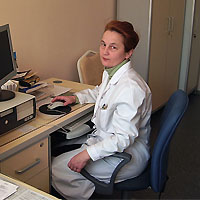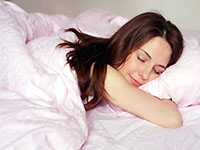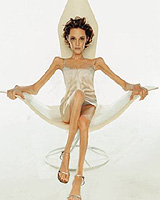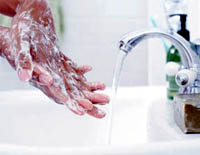Unexpected falling asleep can be a manifestation of a rather rare disease - narcolepsy. Today, doctors have learned to diagnose it well. But the treatment is not yet finally developed. Read more about the diagnosis and treatment of narcolepsy, read in the article.
Content
Narcolepsy is a disease that manifests the unexpected attacks of drowsiness at the most inopportune moment. It is still not for sure that it is likely to be a disease that is most likely to be guilty. As for the diagnosis of narcolepsy, it is well debugged, which cannot be said about treatment.
 The first step in the diagnosis of narcolepsy is an assessment of your condition by the attending physician and the elimination of other diseases. The next step is a visit to a specialist for sleep medicine (dynamologist).
The first step in the diagnosis of narcolepsy is an assessment of your condition by the attending physician and the elimination of other diseases. The next step is a visit to a specialist for sleep medicine (dynamologist).
In a somnunical laboratory, a specialist will carefully analyze your history of the disease and will fulfill full physical research. If the doctor suspects narcolepsy, then you will be offered to undergo a survey in the laboratory. To confirm the diagnosis and determination of the severity of the disease, two tests are usually carried out: polysomnography and test of multiple lancer to SNA (MTLS-Test).
When conducting polysomnography, you must spend the night in a somnunical laboratory in an individual comfortable room. Small electrodes will be attached to the skin using a sticky jelly-like substance. Electrodes will register brain waves, muscle activity, heart rhythm and eye movement. This procedure is painless, and you will be asked to sleep in the setting as close as possible to the usual. This test is necessary to determine the presence of other disorders that can cause you symptoms.
The next day, MTLS test is held. In the daytime, with the same electrodes, you are invited to fall asleep for 20 minutes during four or five attempts at intervals of two hours. With MTLS test, your pattern (drawing) of sleep is controlled. Persons with narcolepsy tend to have a specific sleep pattern, differing from such in healthy people. In narcolepsy, sleep with dreams often begins shortly after falling asleep patient. Thus, two of these tests in combination with the symptoms you have will help specialists in sleep medicine determine if your symptoms of narcolepsy or other disorder have been caused by the same signs.
 Although at present, narcotepsy can not be cured, its symptoms can usually be monitored or facilitated so that persons suffering from the disease are less likely to have its manifestations and can lead a rather normal lifestyle. If you are diagnosed with narcolepsy, then, apparently, the plan of your treatment will include several components: drugs, behavioral therapy and the organization of certain events surrounded by the patient.
Although at present, narcotepsy can not be cured, its symptoms can usually be monitored or facilitated so that persons suffering from the disease are less likely to have its manifestations and can lead a rather normal lifestyle. If you are diagnosed with narcolepsy, then, apparently, the plan of your treatment will include several components: drugs, behavioral therapy and the organization of certain events surrounded by the patient.
Recommended medicinal drugs containing caffeine, usually ineffective in narcolepsy. However, drugs released by prescription drugs that can effectively control excess daytime drowsiness, cataplecy, hallucinations and sleep disorders. You and your attending physician must combine efforts in finding an optimal balance between the adequate control of the symptoms of the disease and the side effect of drugs.
Treatment You have narcolepsy, will probably require not only medicines, but also to adapt your lifestyle. The following recommendations can significantly improve your feelings of well-being:
- Observe regular sleep mode / wake. Go to bed and get up approximately at the same time every day.
- Regular short-term day sleep episodes can be useful.
- Be careful when performing actions that can be dangerous, such as driving a car or cooking; Try to plan your schedule to be vigilant at this time.
- Carefully follow the recommendations of your doctor for receiving medicines. Immediately inform him of any changes or problems with your medicines.
It is difficult to control narcolepsy, if your family, acquaintances and colleagues do not understand the essence of the disease. Day drowsiness may be mistaken for laziness, depression or loss of abilities. Signs of cataplepsy or dreams during wakefulness may be mistakenly considered as psychiatric problems.
If you are suffering from narcolepsy, your attending physician must deal with your family members, assure your (His) spouse or other family members who may believe that they neglect or use that your behavior is not intentionable or mentally abnormal. Family support - an important step in the ability to cope with the disease.
Here are instructions for a patient narcolepsy:
- Tell your employers about the disease. Ensuring certain conditions at work will allow you to remain a profitable employee.
- Find a group of narcolepsy support. Acquaintance with other people who have the same disease can have encouraging action.
- If Narcolepsy is hampered by the performance of your work, then consider other available sources of income.
- If Narcolepsy is suffering from your child, then make sure his teachers know about this disease. Small adjustments in the classroom can have a huge impact on your child from self-esteem and ability to get a good education.









